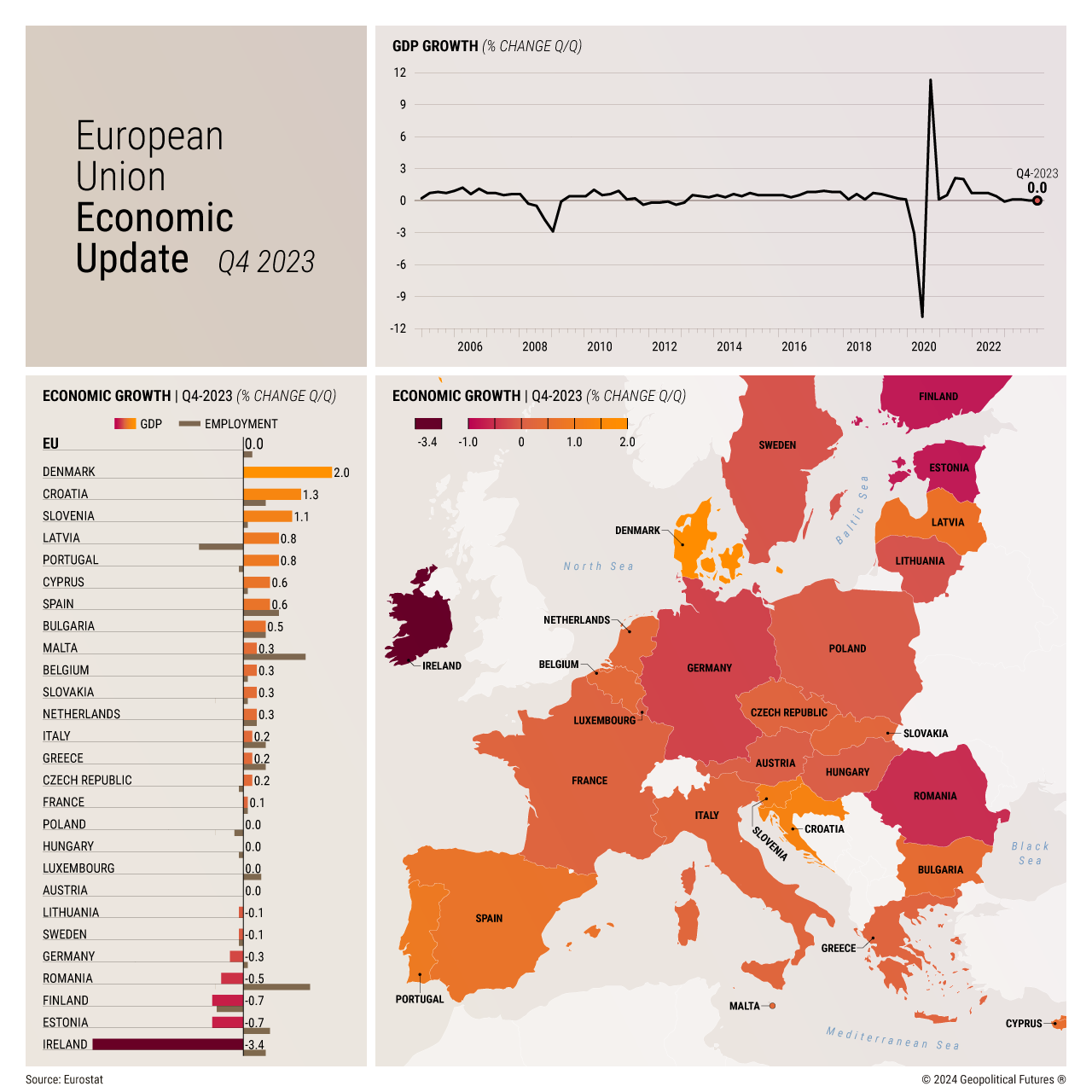Several European countries will hold elections this year, with economic conditions and the Russia-Ukraine war dominating discussions. Slovakia, Lithuania and Romania will elect presidents; Lithuania and Romania will also elect parliaments, as will Belgium, Croatia and Austria. Additionally, EU voters will choose a new European Parliament. These elections will highlight Europe’s political fragmentation and pose challenges to governance.
The EU’s economic growth was stagnant at the end of last year. France, Italy and Germany, the bloc’s largest economies, experienced minimal to negative growth. Gross fixed capital formation, government spending and household consumption slightly boosted growth, with gains ranging only from 0.1 to 0.2 percent over the previous quarter. Although the regional economy may be stable this year, expectations of a rebound are low, and many governments would be content just to dodge recessions.




 Special Collection – The Middle East
Special Collection – The Middle East